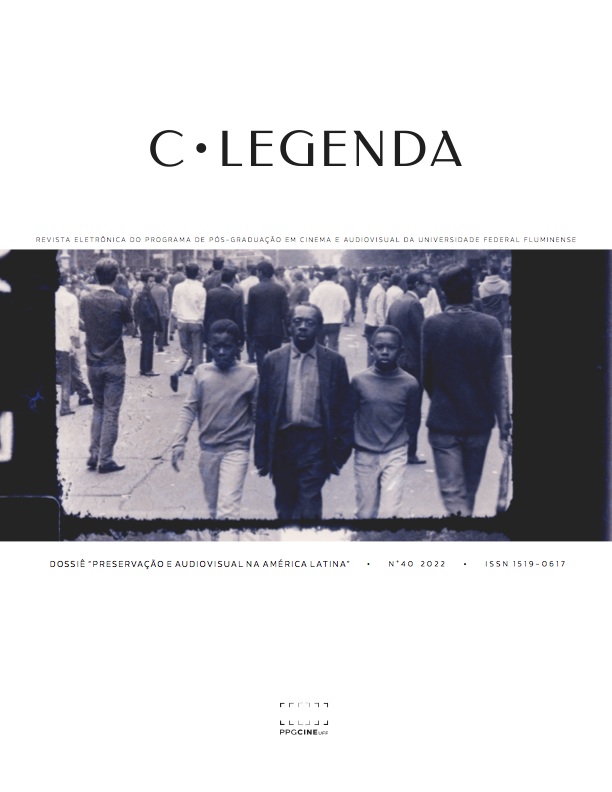The impact of public policies on audiovisual heritage: the case of the Cineteca de la Universidad de Chile under the military dictatorship
Abstract
The installation of military dictatorships in Latin America, starting in the second half of the 20th century, meant dismantling the pre-existing relationship between the State and the institutions dedicated to culture. In the case of audiovisual heritage, it is of particular interest to address the fragility of archives in the face of cultural policies deployed by authoritarian regimes, making the concept of heritage deterioration more complex. To address this issue, we propose as a case study the Cineteca of the University of Chile, intervened by the dictatorship in 1973 and closed by it in 1976, meaning a dispersal of archives and the irreversible loss of an archival practice. Based on this case, the mechanisms that lead to dismantling the local cultural fabric will be reviewed, first from the paradox of a State that creates conditions to close a public archive, and then the concepts of culture and audiovisual heritage will be stressed.
Downloads
Downloads
Published
Issue
Section
License
Autores que publicam nesta revista concordam com os seguintes termos:- Autores mantém os direitos autorais e concedem à revista o direito de primeira publicação, com o trabalho simultaneamente licenciado sob a Creative Commons Atribuição-NãoComercial, CC BY-NC permitindo o compartilhamento do trabalho com reconhecimento da autoria do trabalho e publicação inicial nesta revista, sem que o material seja usado para fins comercias.
- Autores têm autorização para assumir contratos adicionais separadamente, para distribuição não-exclusiva da versão do trabalho publicada nesta revista (ex.: publicar em repositório institucional ou como capítulo de livro), com reconhecimento de autoria e publicação inicial nesta revista.
- Autores têm permissão e são estimulados a publicar e distribuir seu trabalho online (ex.: em repositórios institucionais ou na sua página pessoal) a qualquer ponto antes ou durante o processo editorial, já que isso pode gerar alterações produtivas, bem como aumentar o impacto e a citação do trabalho publicado (Veja O Efeito do Acesso Livre).


